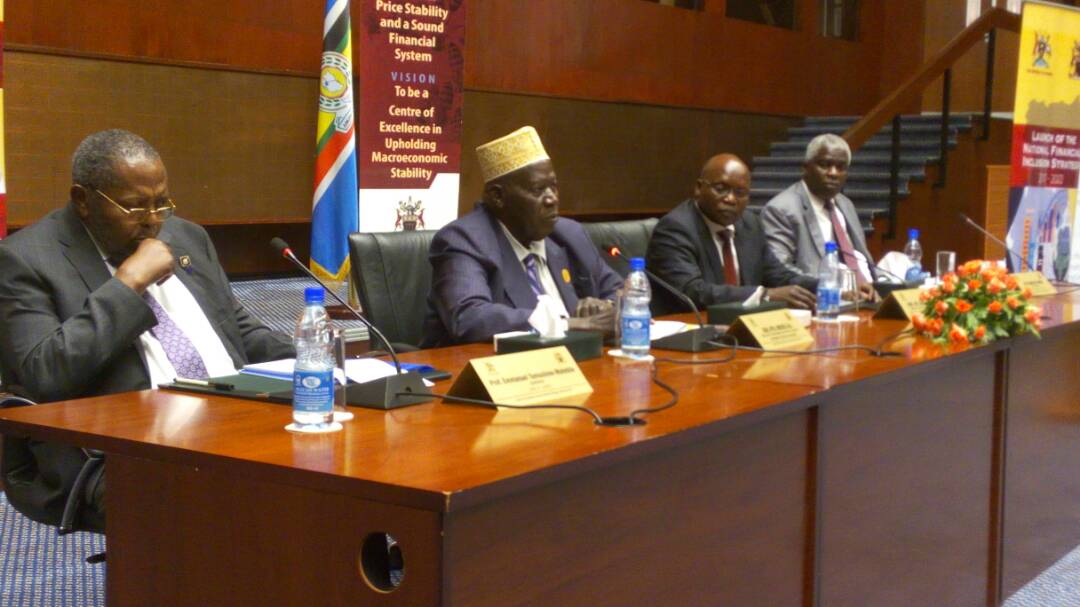The Governor of the Central Bank Tumusiime Mutebile and other players in the banking sector have asked that government fast track the implementation of the Financial Inclusion Strategy so as to deepen the penetration of financial services. They say that for Uganda to achieve socio-economic growth, the 15% of adult Ugandans that still rely on unregulated and informal financial services need to be brought down.
Mutebile was speaking during the launch of the Financial Inclusion Strategy at Kampala Serena Hotel on Thursday. The strategy comes seven years after Bank of Uganda initiated a program on financial inclusion and it seeks to develop credit infrastructure and reduce barriers to financial access.
“There’s need for an ambitious and comprehensive national strategy to further reduce the 15% to 5% by 2020 to improve welfare of citizens and better social economic transformation,” Mutebile said.
Since its inception in 2011, Mutebile said, the program has paved way for the formulation of; consumer protection and mobile money guidelines, and agent banking legislation. Now with the strategy in place, the Governor urged government to move fast in developing laws that will facilitate its implementation.
In his key note address, Nobert Mumba, the Deputy Executive Director for Alliance for Financial Inclusion (AFI) said focus should not just be on access but delivery of affordable and effective services.
“The poor are not asking for any favors. All they need is a level playing field that will uplift them from poverty. This strategy is an essential catalyst to address inclusion but the next phase [implementation] is even critical,” Mumba said.
Citing the role of mobile money in Kenya, he noted that ease in accessing credit has the potential to transform agriculture as well as the special groups like women, youth, internally but also create solutions for problems like climate change.
Wilbrod Owor, the CEO of Uganda Bankers Association acknowledged the importance of the strategy in making more people bankable, but asked that government considers incentives for those seeking to deliver financial services especially in remote areas.
Owor said that innovations within the sector, particularly the rise of mobile money transactions have transformed trade and the way of life especially for rural populations.
The strategy was launched by First Deputy Prime Minister Gen Moses Ali who said it focuses on pertinent gaps like digital services, credit expansion and affordability in the financial sector.










